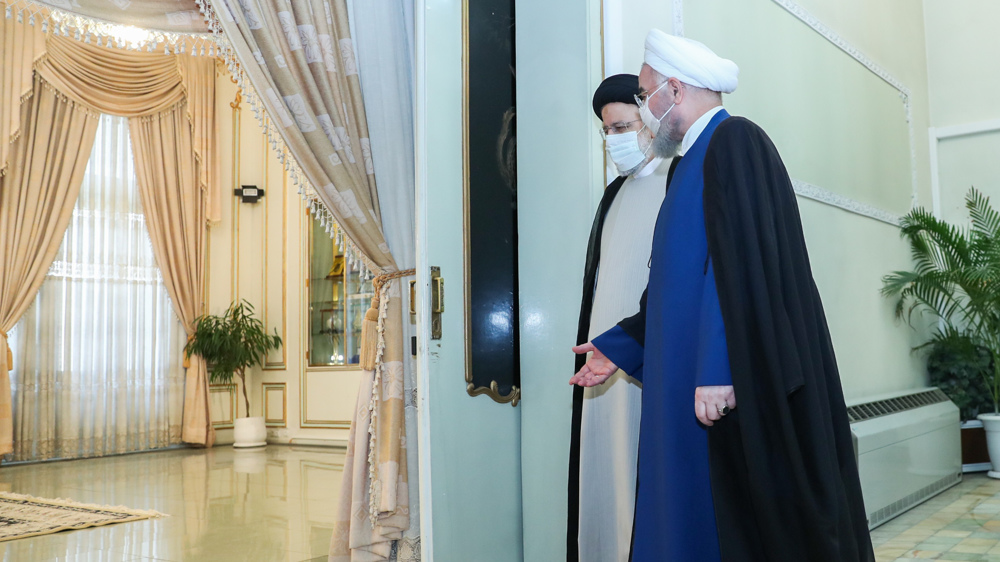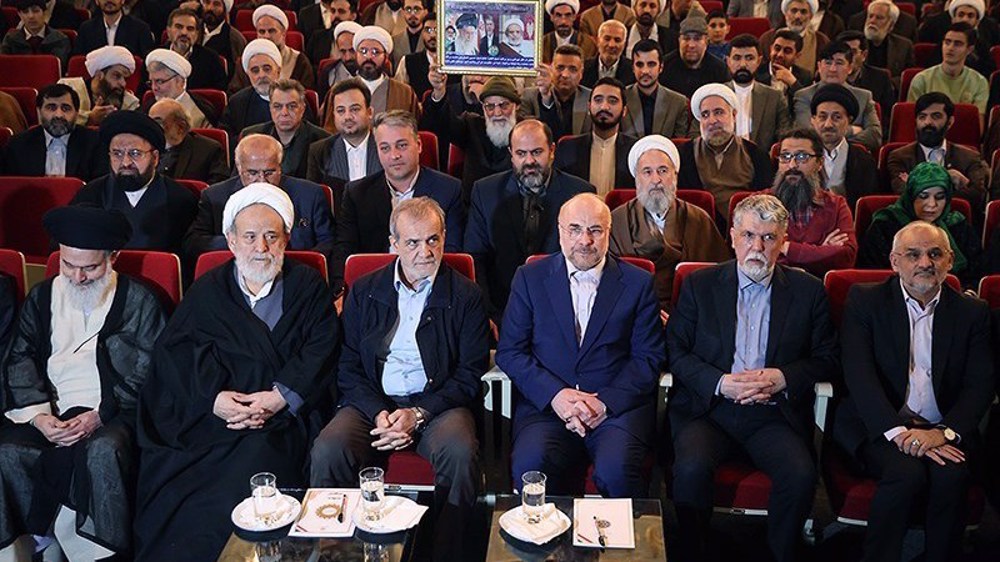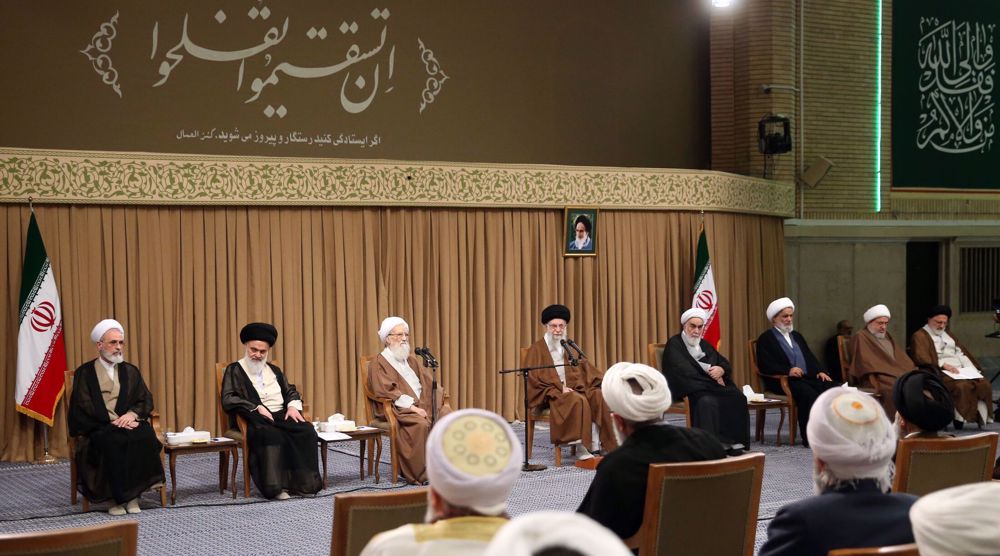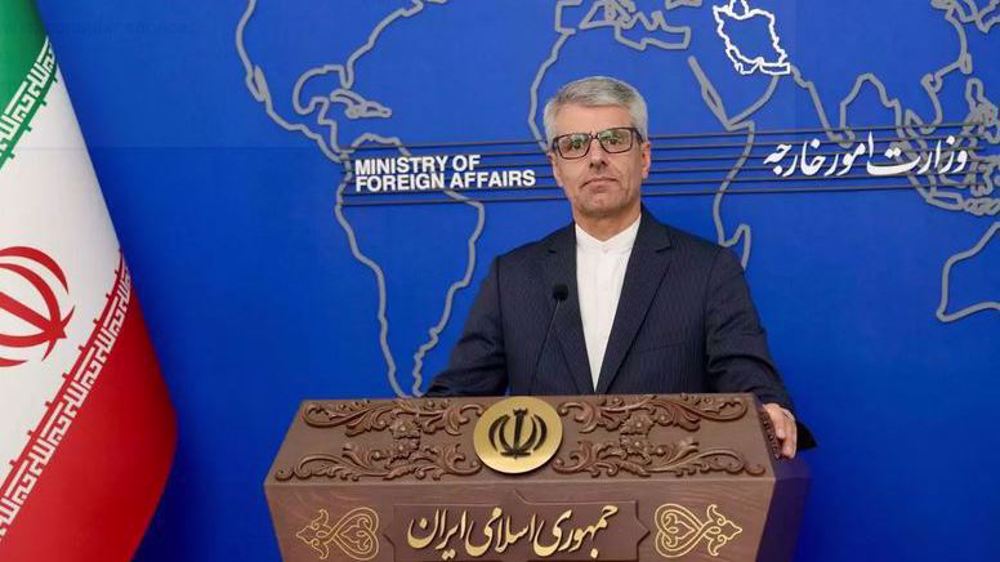Iran: Next administration to decide about Vienna talks if no deal reached by end of Rouhani term
Iran says if the parties to the Vienna talks on a revival of the 2015 nuclear deal fail to reach an agreement by the end of President Hassan Rouhani’s term in August, the new Iranian administration will be in charge of deciding the future of the negotiations.
“Currently, a general agreement has been reached almost in all points of differences between the two sides and related documents have been prepared. We have now reached a clear text with no ambiguity in all the working groups,” Ali Rabiei, the spokesman for the outgoing Rouhani administration, told reporters at his weekly press briefing on Tuesday.
He added that the issues that continue to stand out require “political decisions on the part of all sides” rather than negotiations, and “if those political decisions are taken, one can be hopeful and it is not unlikely that we will enter a final round of talks” next week, when the Iranian negotiating team will return to Vienna.
Representatives of Iran and the remaining signatories to the multilateral nuclear deal, officially known as the Joint Comprehensive Plan of Action (JCPOA), have been engaged in the Vienna process since early April with the purpose of finding ways to bring the United States back to the deal and prepare the ground for its full implementation.
A US delegation is also in the Austrian capital, but it is not attending the discussions directly because the United States is not a party to the accord any longer after it unilaterally withdrew from the JCPOA in 2018.
At the end of the sixth round of the Vienna talks on Sunday, negotiators for Iran and the P4+1 group of countries — Britain, France, Russia, China and Germany— decided to adjourn the negotiations to return to their respective capitals for consultations as remaining differences still need to be overcome.
Elsewhere in the presser, Rabiei rejected any link between the Vienna talks on the JCPOA’s potential revival and Iran’s domestic politics and the outcome of its recent presidential election, saying the issue was raised during a meeting between President Rouhani and his successor-to-be Ebrahim Raeisi on Saturday.
“In fact, this is not a decision to be taken by this or that administration and depends on other variables such as the acceptance by the US of Iran’s views,” Rabiei explained.
He noted that the current Iranian administration saw itself duty-bound to conduct the Vienna talks on the basis of the “maximum pursuit of its national interests,” and based on the country’s general policies and the guidelines set by Leader of the Islamic Revolution Ayatollah Seyyed Ali Khamenei and the highest levels of the Islamic establishment.
“In case the other parties are ready, the [Iranian] administration has no problem with concluding the talks, but if no deal is finalized for any reason by the end of the 12th administration’s legal term, then the 13th administration [to be formed by Raeisi] will be in charge of the negotiations and taking a decision about their details,” Rabiei pointed out.
The US, under former president Donald Trump, left the JCPOA in 2018 and initiated a “maximum pressure” policy against Iran, prompting Tehran to take remedial measures by gradually reducing its nuclear commitments under the deal.
President Joe Biden has said Washington is willing to return to the pact if Tehran first suspends its countermeasures taken in response to US violations and re-imposition of sanctions.
Iran says the onus is on the US to revive the deal as it was Washington, not Tehran, that left the internationally recognized accord in defiance of global criticism.
The Iranian president-elect said on Monday that the United States must return to full compliance with the JCPOA and fulfill its commitments as per the accord.
Raeisi told a press conference, “I emphatically urge the United States to return to the JCPOA and comply with its commitment. The Iranian people expect you to abide by your obligations.”
However, sources familiar with the Vienna talks told Press TV on Tuesday that the US is still refusing to remove the Trump-era sanctions and return to compliance with the Iran deal, and that President Biden was sticking to his predecessor’s “maximum pressure” campaign against Iran.
VIDEO | Press TV's news headlines
Israeli strike on UNRWA school in Gaza kills 14 civilians
VIDEO | Iran, Pakistan vow to strengthen defense, security cooperation
VIDEO | South Korea braces for Trump presidency
Resistance groups strongly condemn Israel’s new deportation law
Hezbollah missiles hit two major Israeli military bases
Rallying for peace: Why are thousands marching from Parachinar to Peshawar
Ireland says will join South Africa's genocide case against Israel at ICJ












 This makes it easy to access the Press TV website
This makes it easy to access the Press TV website